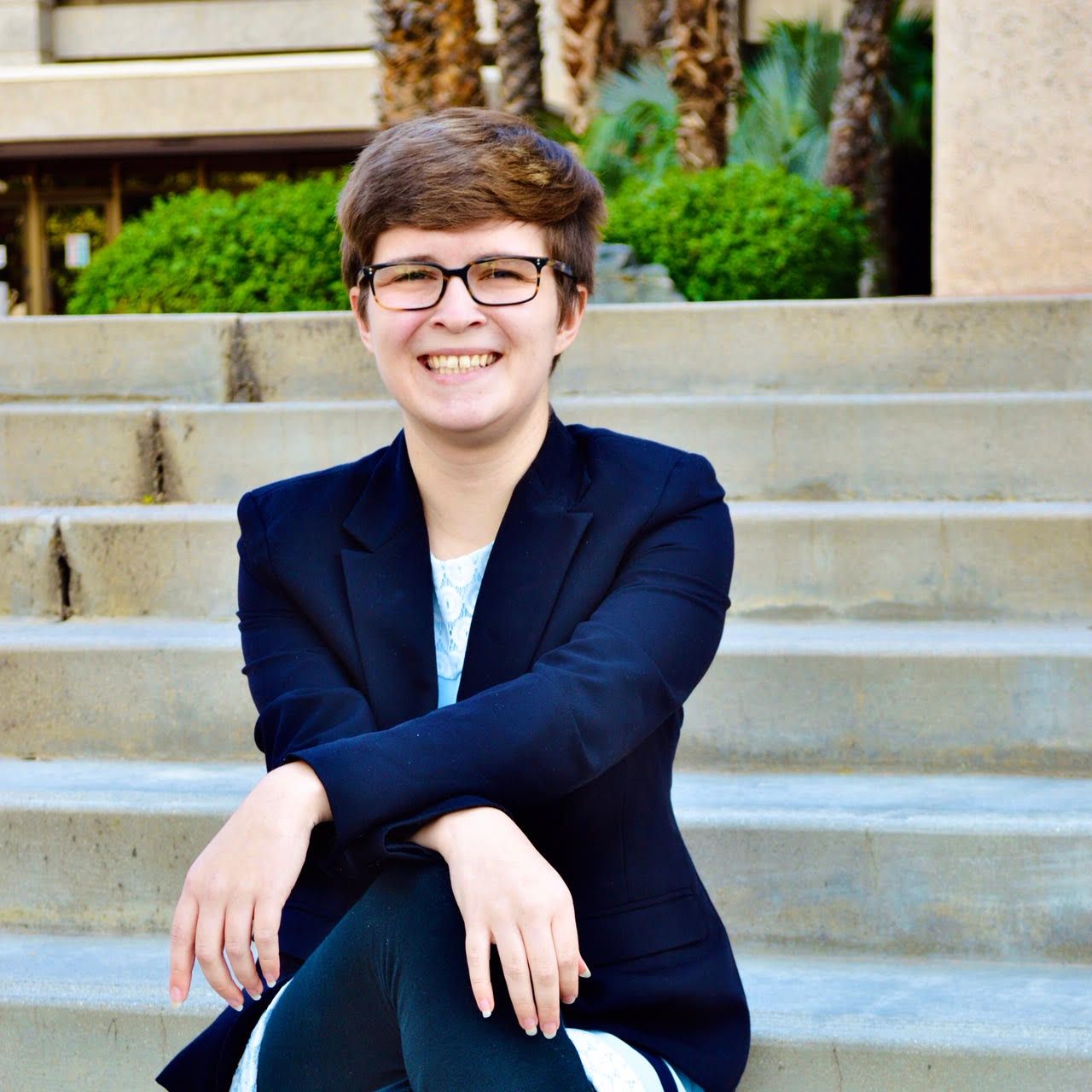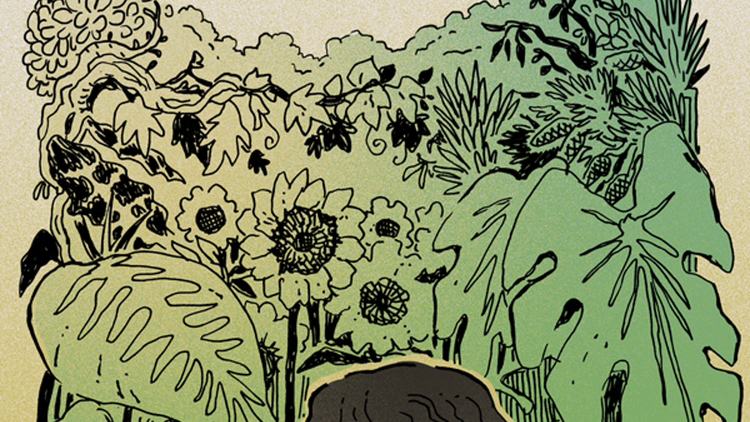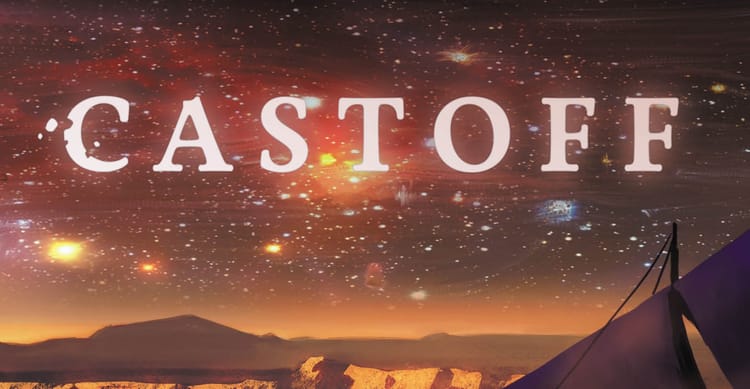Personal Canons: Young Wizards
In addition to my own reflections and guest posts from brilliant folks in the writing community, the Personal Canons series will also feature essays purchased from among the many dazzling submissions I received in response to my open call. Last time, AnaMaria Curtis wrote about The Blue Sword and being a bridge. Today, I’m thrilled to feature Erin Maier.
Erin Maier is a queer, non-binary astrophysicist and writer of science fiction, poetry, and music. They live in Tucson, Arizona, where they spend their days simulating space telescopes by daylight, studying dust in other Solar systems by moonlight, and writing in the spaces between. They can be found on twitter as @so_erinaceous.

When I was 10 or 11, some family friends gave me a box set of the first three books in the Young Wizards series by Diane Duane. The series, now 37 years in and 10 books strong, follows the adventures of Nita and Kit, teenagers from New York who discover manuals for wizardry. They swear the Wizard’s Oath and thus swear themselves to the never ending fight against the Lone Power, the being who invented entropy and death; swear to fight to protect and preserve Life and slow down the inevitable heat-death of the Universe.
Neither those family friends nor me could have predicted the impact Young Wizards would have on my life. I could write thousands of words about the ways it has shaped me as a reader; a writer; a person. But what I think it really comes back to is a single quote from the first book, So You Want to Be a Wizard.
“Don’t be afraid to make corrections!”
This piece of advice is offered to Nita and Kit by the slightly prophetic pet macaw, Peach, of their local wizard Advisories, Tom and Carl, before their Ordeal. In Young Wizards, every new wizard must go through an Ordeal. Ordeals ask you to solve the problem you were offered wizardry for, to prove you are worth the energy invested in you - for you are offered the Wizard’s Oath when there is a problem in the Universe only you can solve.
Ordeals almost inevitably end in a confrontation with the Lone Power. Indeed, the meaning of this advice only becomes clear at the climax of the book, when Nita reads the name of the Lone Power and realizes that Its inability to change is written into Its very essence. Even if It wanted to change, It can’t; Its pride and fear of ridicule won’t let It.
Nita remembers those words she was told, a week and a lifetime ago, and with a single arrow rewrites the Lone Power’s name to give It the ability to change. If It wants. If It chooses. 13 years old, a brand new wizard and terrified out of her wits, Nita offers compassion and mercy to the oldest evil in the Universe.
Here Young Wizards says: it’s never too late to change. Diane Duane comes back to this idea again and again throughout the series. Wizardry is always about choosing to change or not, in one way or another. Of course, change is never without a price: wizardry gives only so much as it is given. But if you are willing, if you choose, you can change more than you ever dreamed.
“This is a business for saints, not children!” Nita’s father exclaims to Tom and Carl in High Wizardry, upon learning Nita’s younger sister Dairine has also become a wizard. “Even saints have to start somewhere,” they tell him. The youngest wizards have the most power, because they aren’t yet so confined by the idea of “possible.”
That said, though wizards may wield incredible power, they’re not supposed to consider themselves better than “ordinary” people. Wizards still have to live in their worlds. They have to go to school and work, do their chores and homework and pay their bills. Nita and Kit have to deal with typical teenage problems like parents, romance, sex, and bullying. In Young Wizards, there is magic in both the ordinary and extraordinary. Turning off the lights can do as much to slow down entropy as any spell.
When I graduated high school, I wrote those family friends a thank you card for their graduation gift. I actually spent most of the card thanking them for giving me that box set 10 years before. Young Wizards was with me through so much in that decade, so many choices and changes, and has been with me through so much since. My first romantic relationships (and ensuing breakups); questioning my sexuality and my gender; grappling with mental health issues; constantly building and rebuilding my support networks as I moved from high school to college to grad school, and more. No matter what, though, I always had my community of friends - or cousins, as wizards call fellow wizards - that I found through Young Wizards. “There are no accidents,” Young Wizards says. I don’t think it was an accident that I received the first books around the age many wizards find their manuals.
Nita and Kit’s adventures may span our known - and unknown - Universe, and more Universes besides, but they always come back to deeply human questions about life and love; death and sacrifice; fear and courage; mercy and forgiveness. Wizards aren’t infallible; they make mistakes like the rest of us. Sometimes they make the wrong choices. But what has stuck with me more than anything from Young Wizards is that it’s never, ever too late to choose to do better.
The Universe will die, is dying, but there’s no need to make it get there faster. We should treat the people and the world around us with kindness regardless, love them fiercely and deeply, without shame or fear. We should do our best to leave the Universe better than we found it. That’s the kind of story I want to read. That’s the kind of story I want to write.
I hope that after reading this, maybe one of you will choose to pick these books up. I hope they snag you the way Nita’s wizard’s manual did one fateful day in the library. I hope they speak to you at least a fraction of how they have spoken to me. But no matter what, tell your stories. Stories are a magic all their own that will long outlive you and I. So imagine extraordinary worlds. Imagine kinder futures. You never know who they will reach. Who they will inspire. Who they will shape.
Remember that you can take the oldest story in the world, and write a new ending.
Remember that entropy is running, but we can run faster.
Personal Canons is a series exploring the works of genre fiction that have shaped us as readers, writers, and people. This series features contributions by established authors, new and aspiring authors, readers, and fans.
The police officers who murdered Breonna Taylor are still free. Do everything you can. Donate to the Louisville bail fund. Go to protests and stand up for change. Sign petitions, as many as you can. Text, call, and email demanding justice — there are templates at that link. Donate money, and if you don’t have money, click here to donate just by watching a video playlist, or click here to donate by playing a game. Subscribe to Fiyah, a brilliant speculative fiction magazine that features stories by and about Black people of the African diaspora. Register to vote (double-check to be sure you haven’t been purged from any voter rolls).
Care for yourself and the people around you. Believe that the world can be better than it is now. Never give up.






Member discussion